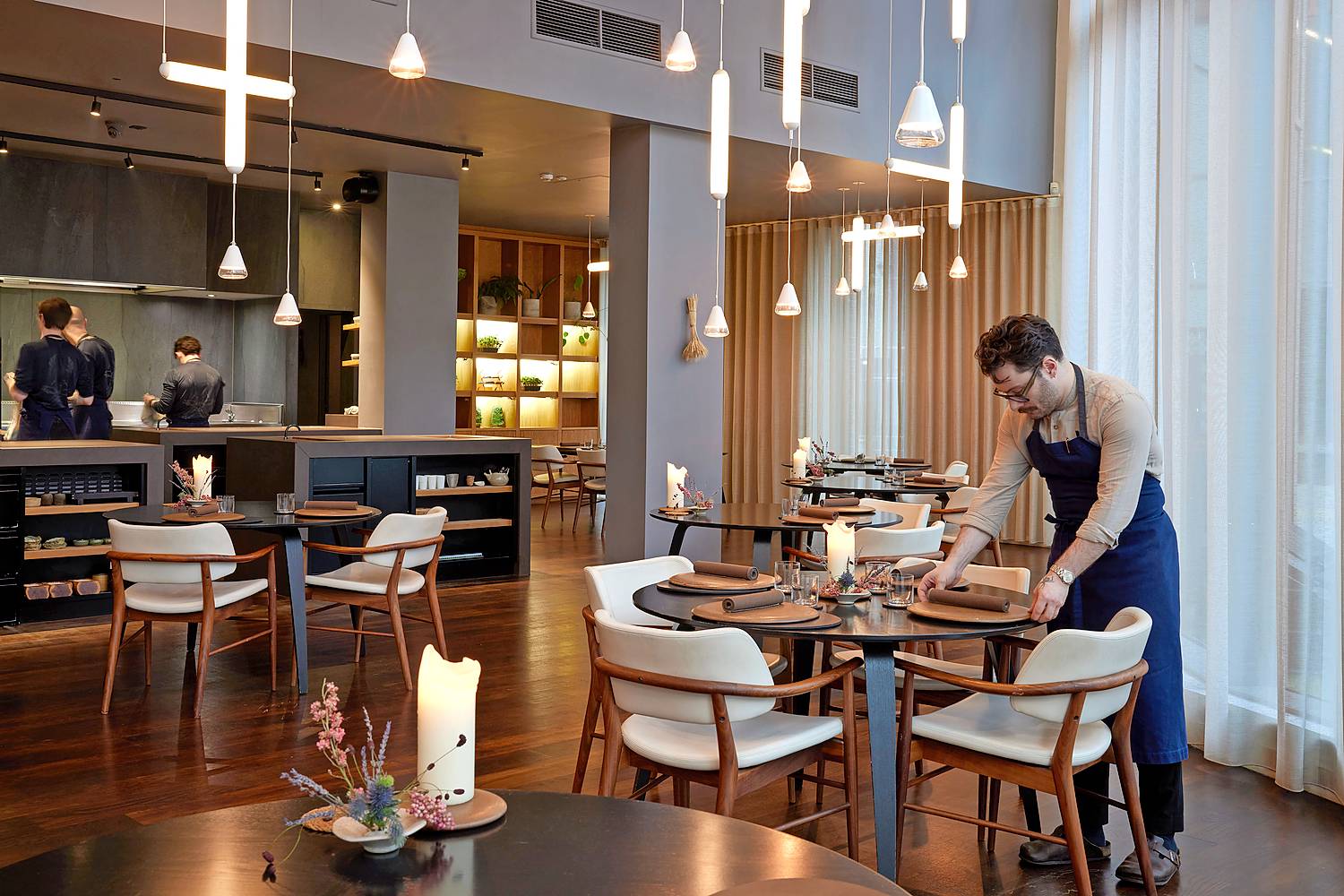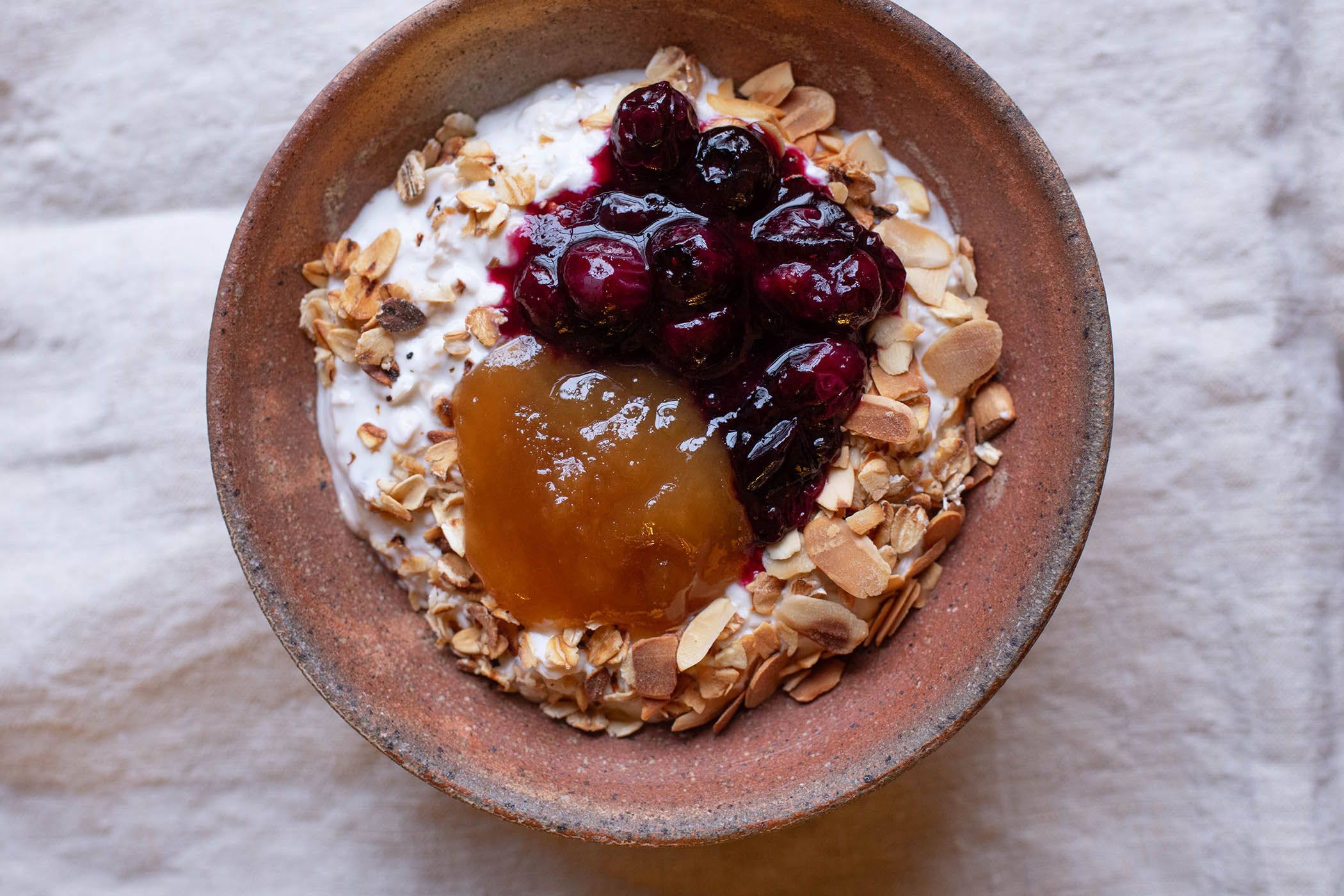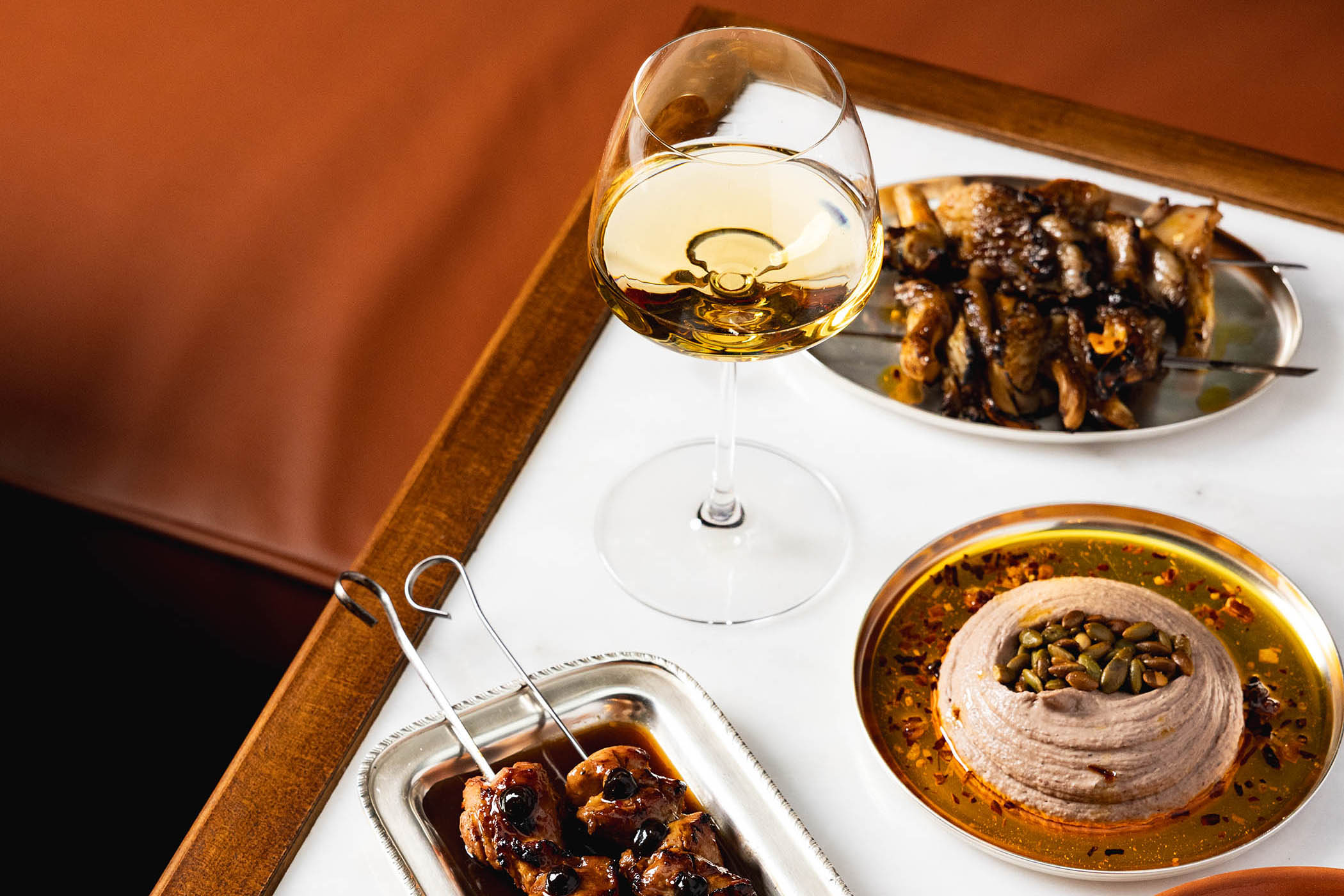I’m a fan of the full English breakfast, as some of you may know. Whilst on tour, I post photos of my FEBs, ordered at various hotels across the UK, on social media. This leads to commenters on X and Instagram screaming that the bacon was over- or under-cooked, or that the eggs were touching the beans. I have kept under a bushel the fact that I am also a fan of the Traditional Sunday Roast. I have so far posted no pictures for fear that the Yorkshire puddings might be touching the roast potatoes.
Which made it a complicated thing for me to have Sunday lunch at Mana, in Manchester, where they don’t serve breakfast and there are no Yorkshires on offer. Instead, we are offered a 13-course tasting menu of culinary jewels, for which you must pay, in advance, £175 (without drinks). The only time I could get a table was 3.30pm, which meant by the time I arrived at a reclaimed industrial building in the Ancoats neighbourhood, my roast-expectant stomach was what Liam Gallagher might describe as “well unhappy”.
I was mollified, though, as soon as I entered. Inside, nine tables are set around an open kitchen with a beautifully calm aesthetic. Though the building was, I’m guessing, a former cotton mill, the 8m-high ceilings and stone hues create more of a cathedral-like air, perhaps inspired by its neighbour, St Peter’s church. The floating tubular lights look not unlike a mix of hanging crucifixes, troubling perhaps, as some of them seem satanically upside-down. But this is a shrine to food and the worship of the senses, created by Simon Martin – a former chef at NOMA and at the time Manchester’s only recipient of a Michelin-star.
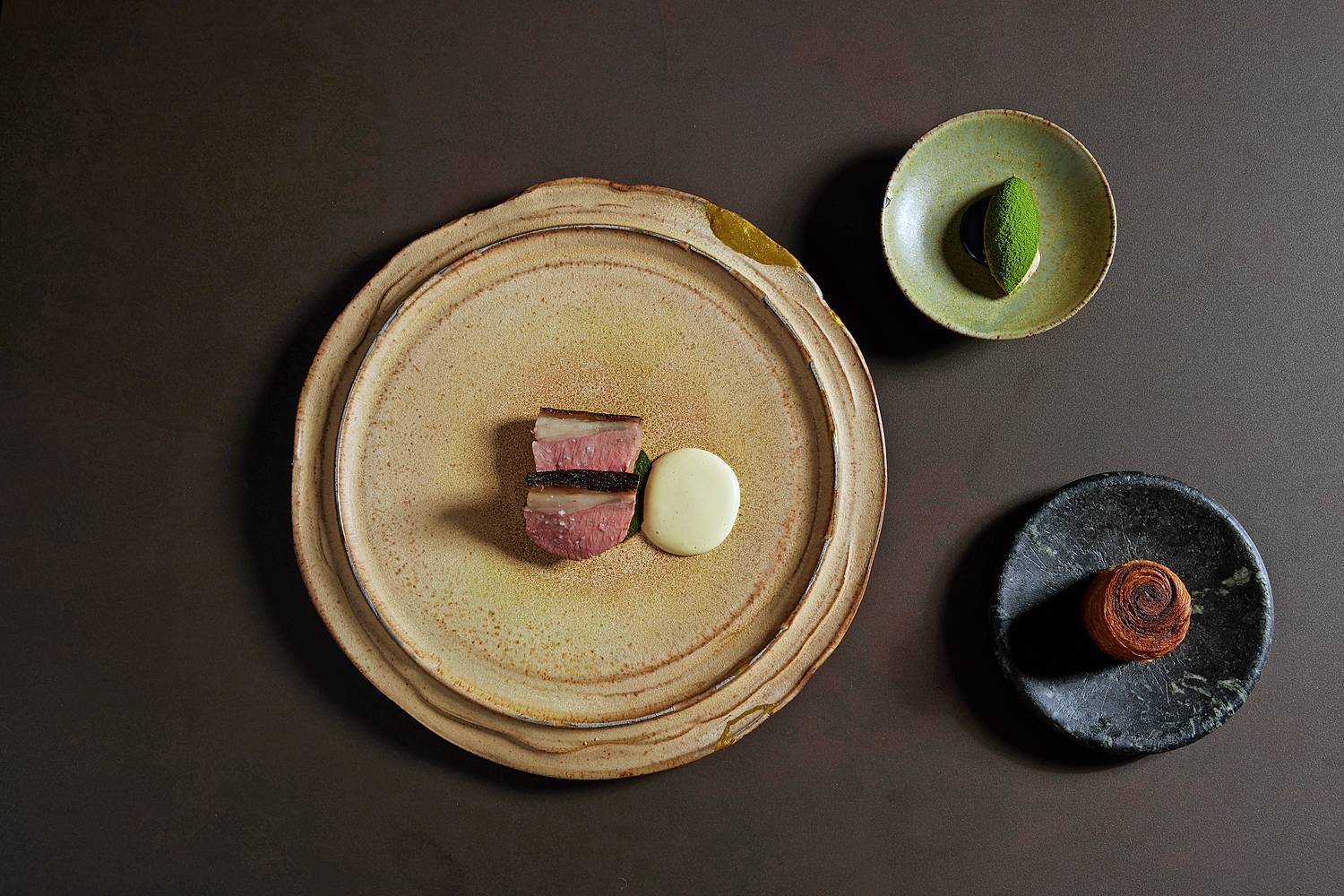
This becomes clear very early on as my guest – Cheshire local and writer of Calender Girls and Neville’s Island, Tim Firth – and I are shown to a lounge and the amuse-bouches start to arrive. I know this is a bourgeois and out-of-date phrase for these complex, packed-with-unusual-flavours, bite-sized plates, but they unquestionably amuse my mouth. Each one comes – as does every course – with a descriptive soliloquy, beautifully performed by the intensely pleasant staff, but not that easy to hear for middle-aged ears fighting with the sometimes banging muzak and the terrifying mass shouts of YES! that emanate from the kitchen every time they complete an order. Which means that now, while writing this review, I must revisit the menu (which was handed to me in a bookmark-sized envelope, with a medieval gold seal) to discover that the first of these amuse-bouches was named Iron Age Coppa. If I Google that, I discover that Alfredo Coppa is an Italian researcher into cranial trauma in the Iron Age. All I can tell you is that his thinly sliced flesh is delicious.
There are a few more dishes in the lounge – one of which, Fried Beer, a crisp-size fragment of deep-fried pint, sounds like a 1990s New Lad dream, but somehow manages to be a supremely delicate crunch – before we are whisked to a table. There isn’t a real gear-shift in the size or style of dishes once there, but the first – a Carlingford oyster in a wasabi and dill soup – gives me, as the young people say, all the feels. So much so that I crave a huge bowl of them. This is an issue with tasting menus: if your mouth is very amused by one dish, there is a certain frustration at not being able to chuck tons of it down your gullet. Also, the ceremony around such small offerings can lead to awkwardness if you are peckish. Tim told me afterwards that he had eaten the oyster course and put the bowl down before realising that the waiter’s description of it was still continuing.
The tiny plates keep coming. They are mainly seafood based: two quisquillas (prawns from Motril in Spain) arrive raw, wearing what appear to be wigs of orange butter. They have a profoundly smooth, sea-bound taste that is only slightly undermined by looking like Muppets. An exquisite cube of Peterhead North Sea cod is doused in vinegar, a faint echo of its brothers in batter being served with chips nearby in Piccadilly. Meat appears as a side-dish of “ethical foie gras”, which sounds like a contradiction in terms, but I’m assured by the staff that some duck or geese are well up for having their livers fatally over-fattened. The main course is, excitingly, the nearest thing Mana is prepared to offer to a Traditional Sunday Roast: hogget, which is, after all, roast lamb. Well, a roast teenage sheep and, in this case, sojae-cured – sojae being a type of Japanese fungus much loved by Simon Martin. It’s more than mouth-amusing: a sly, aged flavour melts fatly on the tongue, transporting me to a parallel utopia where lambs are allowed to frolic free for much longer than usual. It’s accompanied by a very untraditional white-miso sabayon and a croissant-dough pastry which, cut in half, looks like marble cake.
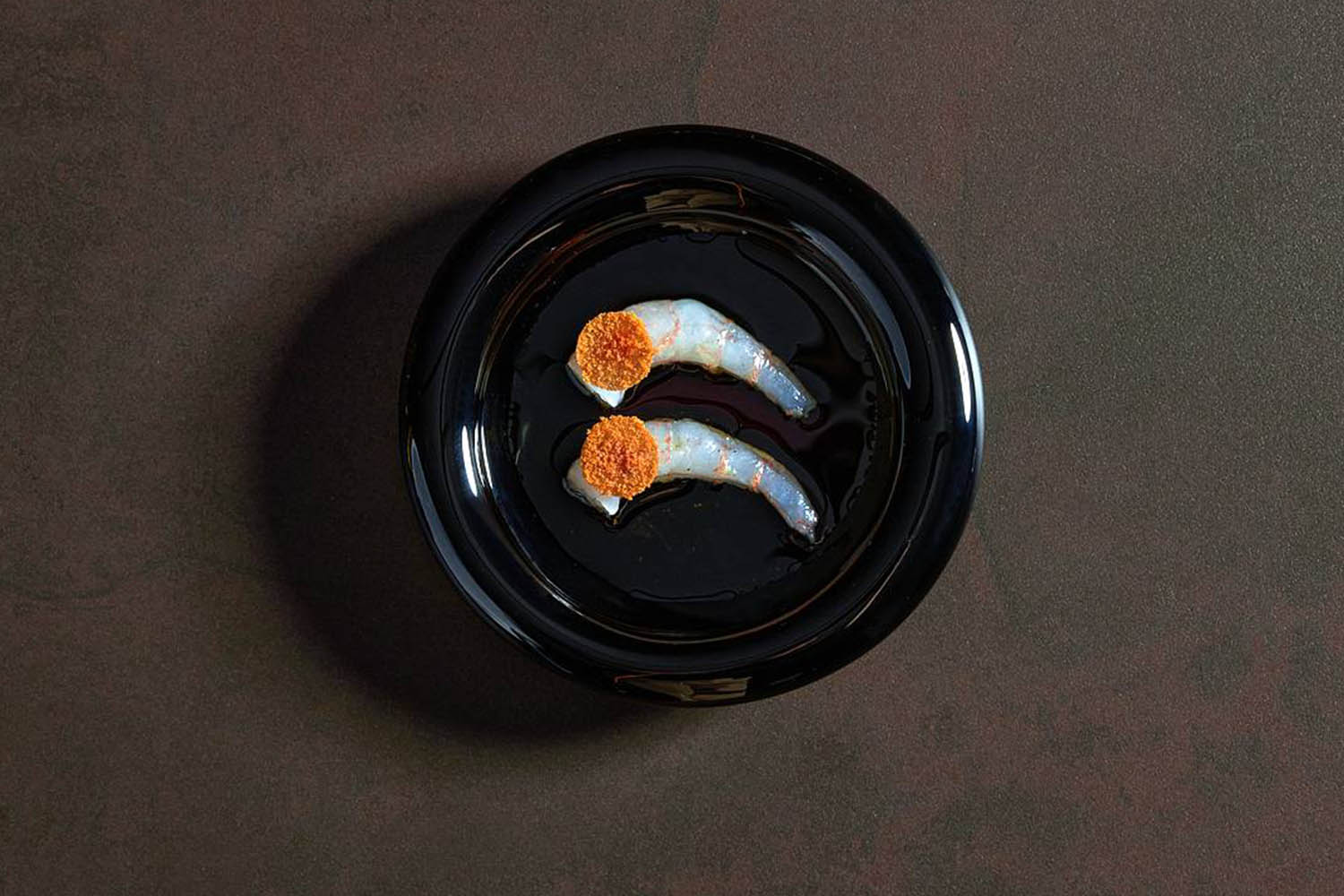
Mana retained its Michelin star, and it deserves to, because a lot of thought and care and love and invention and detail has gone into these dishes
Mana retained its Michelin star, and it deserves to, because a lot of thought and care and love and invention and detail has gone into these dishes
There are still two courses to go and one of these, aspergillus oryzae, exists in a liminal space between savoury and sweet, a fungi sorbet in a sorrel juice topped with Kaluga caviar and served with a kabusecha (Japanese green) iced tea. I know, you’re exhausted just reading that: imagine writing it. Weirdly, eating it doesn’t make you so. You feel, after 13 courses, just about sated, never stuffed. You’d feel different after a tasting menu at Wetherspoons. Especially if you were drinking, which we weren’t, because I don’t (and because you must pay another £190 for the menu’s complementary drinks).
I’ve never been that bothered by swanky food. For me, this type of food is a genre, like Indian, or Chinese, or fast, and doesn’t naturally sit atop the cooking tree higher than any of these others by virtue of expense – the adjective haute, as regards cuisine, just means posh, not better. We went, it turns out, on the day before the 2025 Michelin stars were awarded and Manchester now has a new star: Skof. Mana retained its star, and it deserves to, because a lot of thought and care and love and invention and detail has gone into these dishes. They linger a long time in your mouth-memory. At least they will, in my case, until next Sunday, when I’m off to the pub. At one o’bloody clock.
Related articles:
Mana, 42 Blossom Street, Ancoats, Manchester M4 6BF (manarestaurant.co.uk). Tasting menu £175; drinks menu £190
Photographs Shaw + Shaw
Newsletters
Choose the newsletters you want to receive
View more
For information about how The Observer protects your data, read our Privacy Policy
